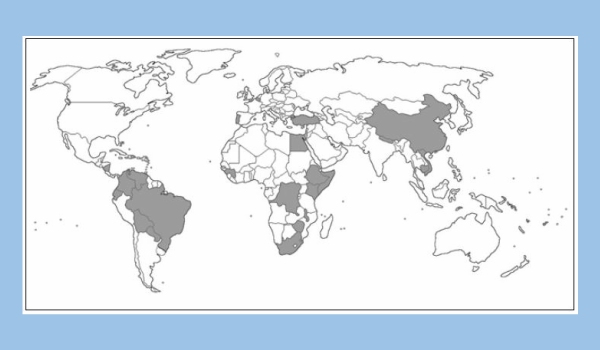
by Katrina Perehudoff, Lucia Berro Pizzarossa
Health & Human Rights 2017 Dec;19(2):279–93
Abstract
General Comment No. 22, issued in 2016 by the Committee on Economic, Social and Cultural Rights (CESCR), clarifies states’ legal duties to respect, protect, and fulfill the right to sexual and reproductive health (SRH). Our study analyzes domestic constitutions around the world to investigate whether and to what extent the right to sexual and reproductive health is respected, protected, and fulfilled; to what extent these provisions are inclusive and non-discriminatory; and to what degree the interlinkages between this and other human rights are acknowledged. Of the 195 constitutions accessed, 27 enshrine sexual and/or reproductive health, and seven adopt restrictive approaches to this right. In the 27 constitutions, provisions most frequently enshrine respect of one’s sexual health and family planning decisions, the protection of sexual health, and the provision of reproductive health care and family planning services (fulfillment). Most of the 27 constitutions fail to adequately respect reproductive health rights; to protect reproductive health, family planning, and abortion services from third-party interference; and to fulfill all dimensions of sexual health and access to abortion. Three of the 27 constitutions enshrine a universal right to SRH, and additional constitutions protect specific vulnerable groups (such as women, children) and/or restrict the scope of rights holders to couples. Among the 27 constitutions, nine explicitly link the right to sexual and reproductive health to the rights to education, science, and/or to make autonomous decisions about sexuality and reproduction. Our results can serve as a baseline measure to track constitutional reforms in pursuit of the realization of sexual and reproductive health and rights, and as building blocks for future lawmakers committed to realizing these rights through domestic legal reform.
Excerpts from the main text
An estimated 20 nations replace or amend their constitution annually, presenting the opportunity to strengthen state commitments to sexual and reproductive health and right. In this process, constitutional framers often seek inspiration from other jurisdictions or from international law.
Abortion – Three countries have specific constitutional provisions about abortion: Kenya, Swaziland, and Somalia (see Table 1). Although the provisions frame abortion primarily in negative terms such as “unlawful,” “illegal,” or “not permitted,” all laws recognize various grounds on which abortion may be permissible.31 No constitution recognizes the duty to protect or fulfill abortion services as a component of the right to sexual and reproductive health.
Special consideration for maternal health – The constitution of Ecuador identifies the state’s responsibility to ensure sexual and reproductive health actions and services, especially during pregnancy, childbirth, and the postpartum period. Motherhood and maternal health are afforded special protection under the constitutions of Paraguay and Venezuela. The constitution of Nicaragua provides for special protection to women during pregnancy and also provides for paid maternity leave.
The Ethiopian constitution regulates sexual and reproductive health and rights under its “rights of women” provision. This provision acknowledges the country’s historical legacy of inequality and discrimination and provides for affirmative measures to counter it. In this regard, it provides that “to prevent harm arising from pregnancy and childbirth and in order to safeguard their health women have the right of access to family planning, education information and capacity.” Nepal’s constitution adopts a similar approach that notably states: “Every woman shall have the right relating to safe motherhood and reproductive health.” Among one of the most inclusive constitutions, Nepal’s law does not limit the right to reproductive health to women of a certain age, reproductive capacity, or marital or citizenship status, as other constitutions have done.
Decisional autonomy and freedom from coercion – Only five constitutions refer explicitly to the right to make free and responsible decisions about one’s sexual and reproductive health. However, despite substantial international traction for the legal recognition of women’s agency over their own sexuality and reproductive function, we identified that the constitutions of China, Vietnam, and Turkey maintain restrictive approaches to issues of reproduction.
Coherence between robust constitutional text and domestic policy – The constitution of Ecuador offers a robust example of how the respect-protect-fulfill framework can be fully integrated into constitutional commitments.



